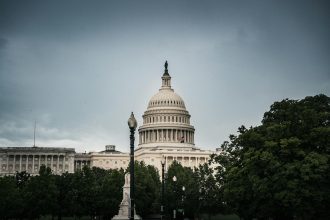chatgpt-safety-policy-debate
ChatGPT Safety Policies: OpenAI’s Stance & Societal Role
The Evolving Landscape of AI and Content Moderation
As artificial intelligence, particularly large language models like ChatGPT, becomes increasingly integrated into our daily lives, discussions around its safety and ethical implications are escalating. OpenAI, the creator of ChatGPT, recently found itself at the center of a debate following adjustments to its content policy. This move has ignited conversations about the company’s responsibility and the broader role of AI in shaping societal norms. The question on many minds is: where does OpenAI draw the line, and what does this mean for the future of AI interaction?
OpenAI’s Position: Not the “Moral Police”
In the wake of a controversial update to ChatGPT’s content policy, OpenAI CEO Sam Altman has clarified the company’s stance. Altman stated that OpenAI does not see itself as society’s “moral police.” This assertion comes after the policy modification, which reportedly allows for certain types of content that were previously restricted. The nuance here is crucial; while OpenAI aims to prevent harmful outputs, it’s also navigating the complex terrain of defining what constitutes “harm” in a rapidly evolving digital world.
Understanding the Policy Shift
The exact details of the policy update have been a subject of much discussion. While OpenAI emphasizes its commitment to safety, the adjustments suggest a recalibration of its approach to content generation. This isn’t about a free-for-all, but rather a more refined approach to balancing user freedom with the need for responsible AI deployment. The company is reportedly focusing on specific categories of harm rather than a blanket prohibition on all potentially controversial topics.
Balancing Innovation and Responsibility
Developing advanced AI like ChatGPT involves a delicate act of balancing groundbreaking innovation with the inherent responsibilities that come with such powerful technology. OpenAI faces the challenge of enabling AI’s potential for good while mitigating risks. This ongoing effort requires constant evaluation and adaptation of their safety protocols.
The Societal Impact of AI Content Generation
The debate surrounding ChatGPT’s content policy isn’t just an internal discussion for OpenAI; it has profound societal implications. As AI tools become more sophisticated, their ability to influence public discourse, generate information, and even shape opinions grows. This necessitates a broader societal conversation about:
- The ethical boundaries of AI-generated content.
- The potential for misuse and misinformation.
- Who should be responsible for setting and enforcing AI content standards.
Navigating the Nuances of AI Ethics
Ethical considerations in AI are rarely black and white. What one group deems acceptable, another might find problematic. OpenAI’s challenge is to create policies that are robust enough to protect users but flexible enough to allow for the continued development and beneficial application of AI. This involves:
- Continuous research into AI safety and alignment.
- Engaging with a diverse range of stakeholders, including ethicists, policymakers, and the public.
- Transparency in their development and policy-making processes.
External Perspectives on AI Governance
Understanding the broader landscape of AI governance can offer valuable context. Organizations like the International Telecommunication Union (ITU) are actively involved in developing global standards and best practices for AI. Their work highlights the international effort to ensure AI technologies are developed and deployed in a manner that benefits humanity. Similarly, academic institutions are publishing extensive research on AI ethics, providing crucial insights into the potential long-term effects of AI on society. For instance, research from institutions like Stanford HAI offers deep dives into the societal implications of artificial intelligence.
Conclusion: The Ongoing Dialogue
OpenAI’s recent policy adjustments and Sam Altman’s comments underscore the complex and dynamic nature of AI development and its societal integration. The company’s assertion that it is not the “moral police” highlights the shared responsibility between AI developers, users, and society at large in shaping the ethical use of these powerful tools. As ChatGPT and similar technologies continue to evolve, so too will the conversations around their safety, governance, and impact. The journey ahead requires continued dialogue, robust research, and a collective commitment to harnessing AI’s potential responsibly.
Explore the ongoing debate surrounding ChatGPT’s content policies and OpenAI’s stance on its role in moderating AI-generated content. Understand the challenges and societal implications of advanced AI.
AI safety debate, ChatGPT policy, Sam Altman OpenAI, AI ethics discussion, content moderation AI



